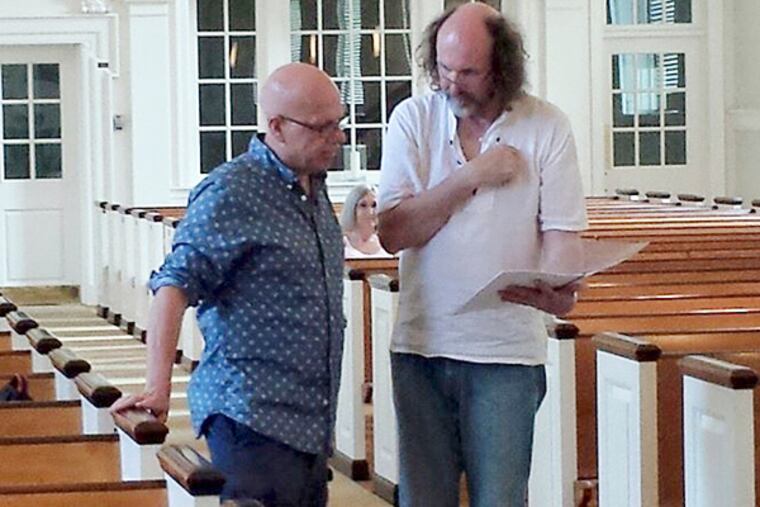Review: Crossing Whitman with Estonia
Baltic composers are naturally keen to reclaim the national identity that was so often suppressed under Soviet rule. But that didn't make the ultra-American poetry of Walt Whitman - in its original English language - off-limits for Tuivo Tulev in his major work premiered Sunday by the Crossing choir at its Month of Moderns Festival.

Baltic composers are naturally keen to reclaim the national identity that was so often suppressed under Soviet rule. But that didn't make the ultra-American poetry of Walt Whitman - in its original English language - off-limits for Tuivo Tulev in his major work premiered Sunday by the Crossing choir at its Month of Moderns Festival.
Funded for the Crossing by the Estonian Ministry of Culture, Tulev's A child said what is the grass was a triumph of internationalism, never resorting to any false Americana while dramatizing Whitman's words, but creating distinctive musical symbolism with the composer's characteristically complex, high-style harmonies.
Meditating on how those buried in the earth become, literally and metaphysically, the grass that grows up above them, the composer didn't set the words with phrase-by-phrase detail common among Americans but created a bedrock of long-sustained choral harmonies, static on the surface, but with an undulating life force within.
Important phrases worked their way above the surface - much like grass, and with arresting poetic purpose. Near the end, the line "there is really no death" arrived in different ways within a few seconds, one iteration being whispered and others sung, with a now-you-hear-it-now-you-don't effect. An aural hallucination?
The singers under Donald Nally had everything in the right place but were still in the process of finding a good sense of beginning, middle, and end in a work that resolutely operates according to its own specific logic. I hope the piece resurfaces in future concerts.
Tulev seemed downright straightforward next to Pelle Gudmundsen-Holmgreen, whose 2003 Three Stages juxtaposed numerous elements from Danish folk songs to Shakespeare's "Sonnet No. 60" (recited, not sung), all sandwiched in a 21st-century conceptual update of medieval-Renaissance polyphony - neo-Machaut? - in which multiple texts ran in tandem. The effect was like the flood of stimuli one has when walking into a great cathedral.
Mass for the Day of St. Thomas Didymus by Philadelphia composer James Primosch, reprised from past Crossing concerts, is one of his best works, and it showed the choir at its considerable best while offering variety. Though the writing is as sophisticated as that of the other composers, less assembly was required of the listener. St. Thomas here was, indeed, "doubting Thomas," and in that spirit, the piece had an interior trajectory about the evolution of belief with a mixture of traditional Latin text and Mass-inspired poems by Denise Levertov.
Harmonic ambiguity steadily decreased as each of the five movements ended. But never was there a ringing sense of certainty: The most one gets is a rhythmically emphatic setting of the words "grant us peace." And in the fifth-movement "Agnus Dei," some ethereal soprano writing slowly melds with the rest of the piece, like a mirage that turns temporarily real. Faith seems provisional here, with each day presenting a new challenge. You can trust a piece that's too personal to proselytize, and, through depth of feeling, achieves more universality.